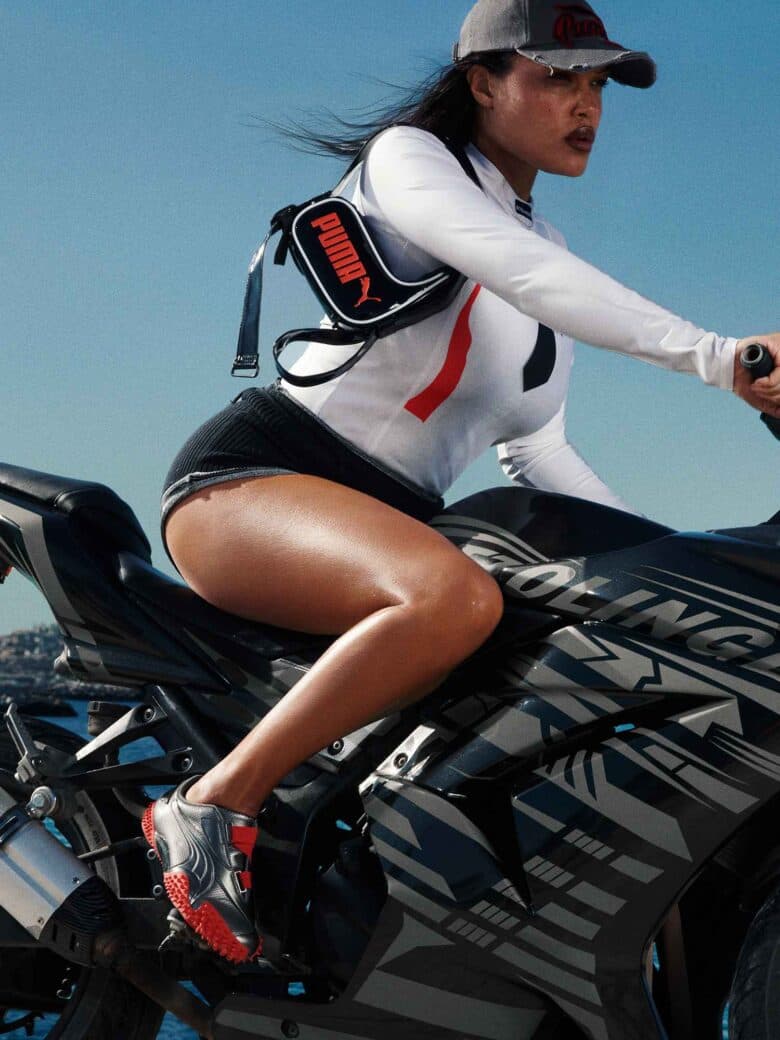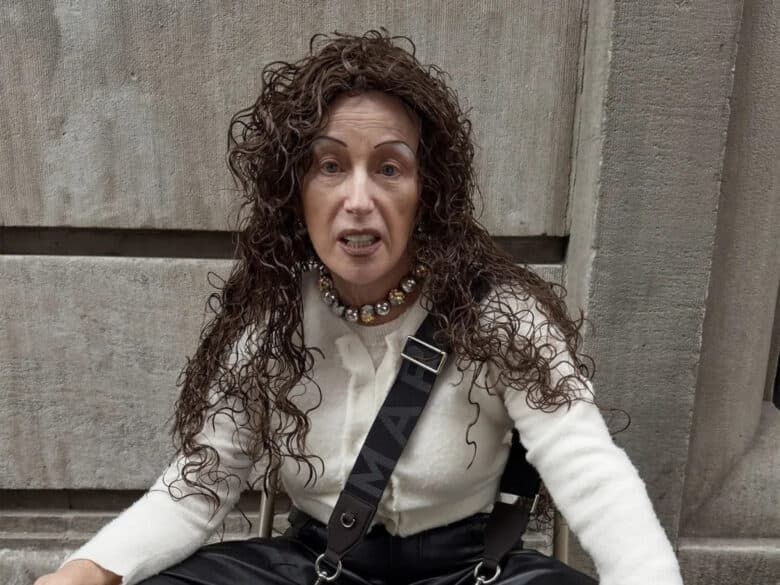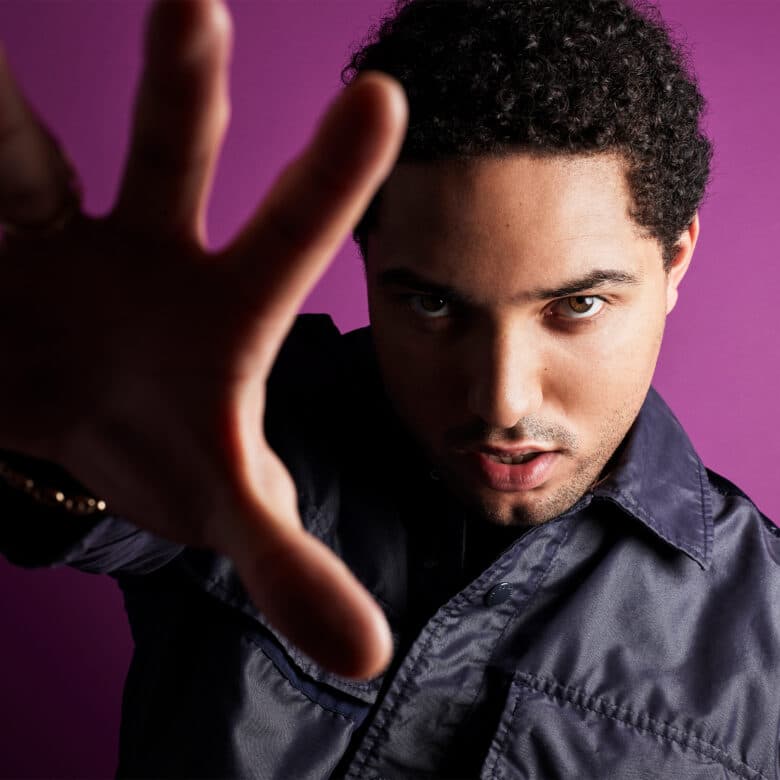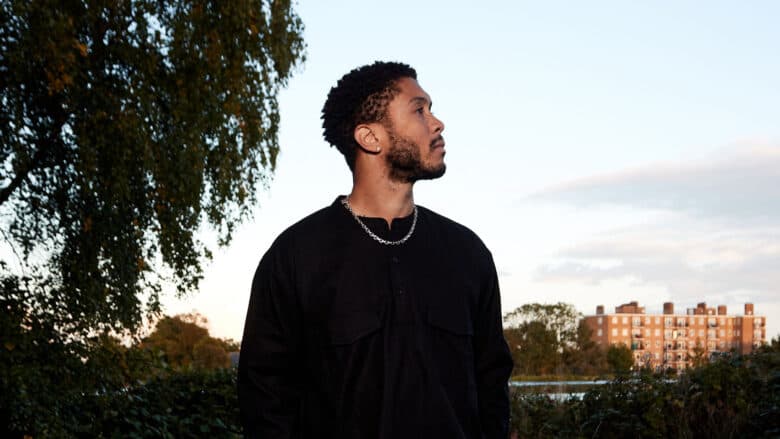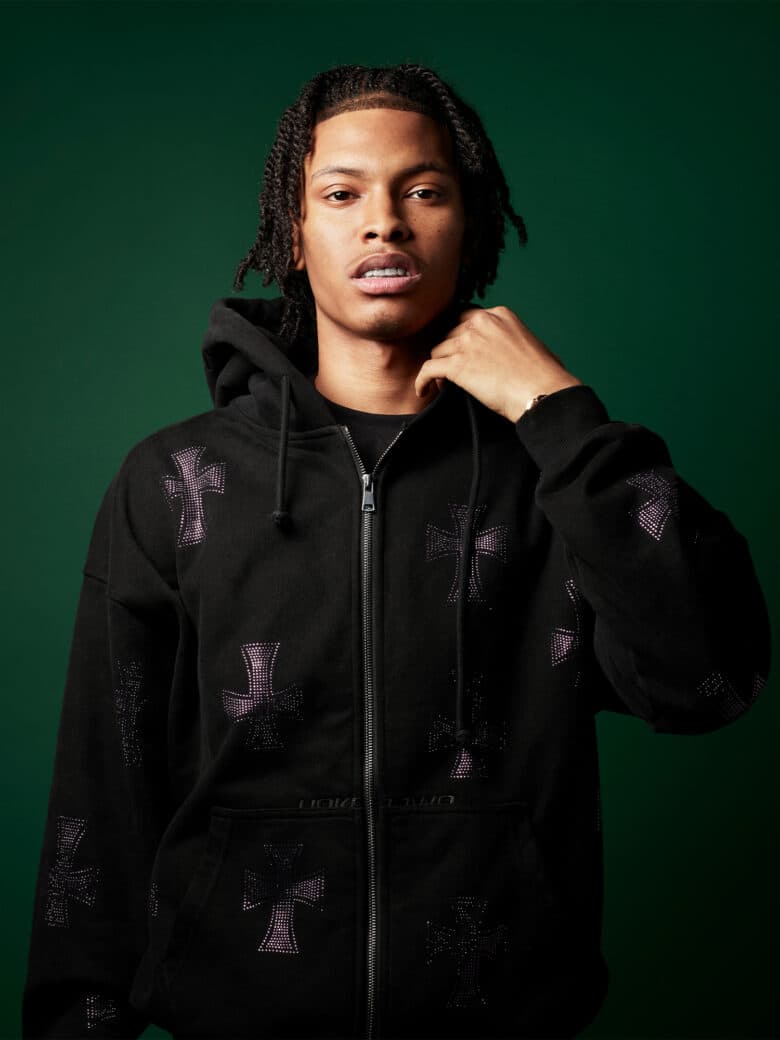Danny Sanchez bares all on his debut album: “It’s just me being completely open and honest about myself”
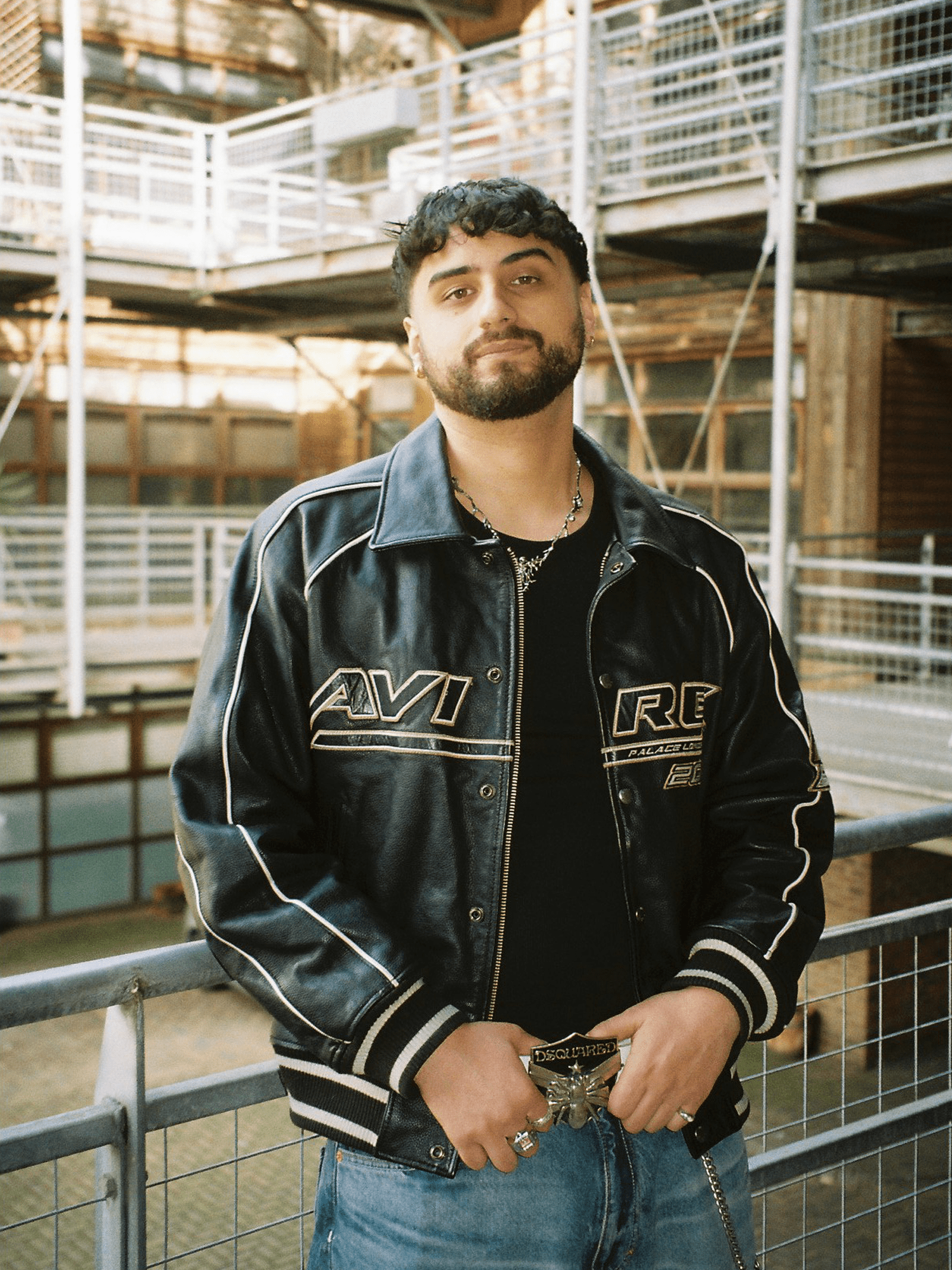
If there was one word to sum up rising rapper Danny Sanchez’s music, it would undoubtedly be ‘honest’. And I also get a glimpse of that attribute in his personality, too. When he joins me at around noon over Zoom, I ask the musician what he’s been up to this morning to which he responds “If I’m being honest, I only just woke up about 20 minutes ago,” accompanied by a large grin. Sanchez, though, fully deserves his lay-in. He was working up until 1am the night prior, and there’s just the small case of his debut album, It Is What It Is Til It Isn’t, dropping on the evening of our interview. And If that’s not a good enough reason for a couple extra whacks of the snooze button then I don’t know what is.
It’s been a long and arduous road for Sanchez to get to this point. He first became enamoured with music at 15 years old, teaching himself how to play the guitar, rap and sing. As he grew older, he began to cultivate the introspective and reflective songwriting he’d eventually become known for, and in 2020 amidst the uncertainty of the pandemic, Sanchez would release his viral hit ‘Hold Up’. In a period of time when people were in need of connectivity more than anything, the artist’s poignant bars struck a chord with many. Slowly, Sanchez would become well known within the UK’s thriving underground scene, collaborating with the likes of fellow rising stars Bawo and The Silhouettes Project, and picking up an incredibly dedicated fanbase along the way.
Fast forward to 2024, over a decade since he first picked up that guitar, and Sanchez has today released his debut album. His most honest work yet, It Is What It Is Til It Isn’t is Sanchez at his most polished and vulnerable. Right from the outset Sanchez lays out all his flaws on ‘Bad Habits’ over dreamy, nocturnal production where he raps “I stopped sleeping, too worried about getting p’s in and battling all these demons.” Nostalgia plays a key role throughout the project’s runtime, which is encompassed best on the sombre yet hopeful piano-led ‘Live It Up’. Meanwhile, It Is What It Is Til It Isn’t sees Sanchez push the boat out further than he ever has before, incorporating more singing and traversing a widely varied sonic landscape that includes UK garage and alternative R&B. To put it simply, if there was ever a record made perfectly for a late night drive, where you reminisce on the good, bad and the ugly while remaining optimistic for what lies ahead, it’d be Sanchez‘ debut.
Here, HUNGER sits down with Sanchez to discuss his musical journey, putting his vulnerabilities on display to the world and his goals as a musician.
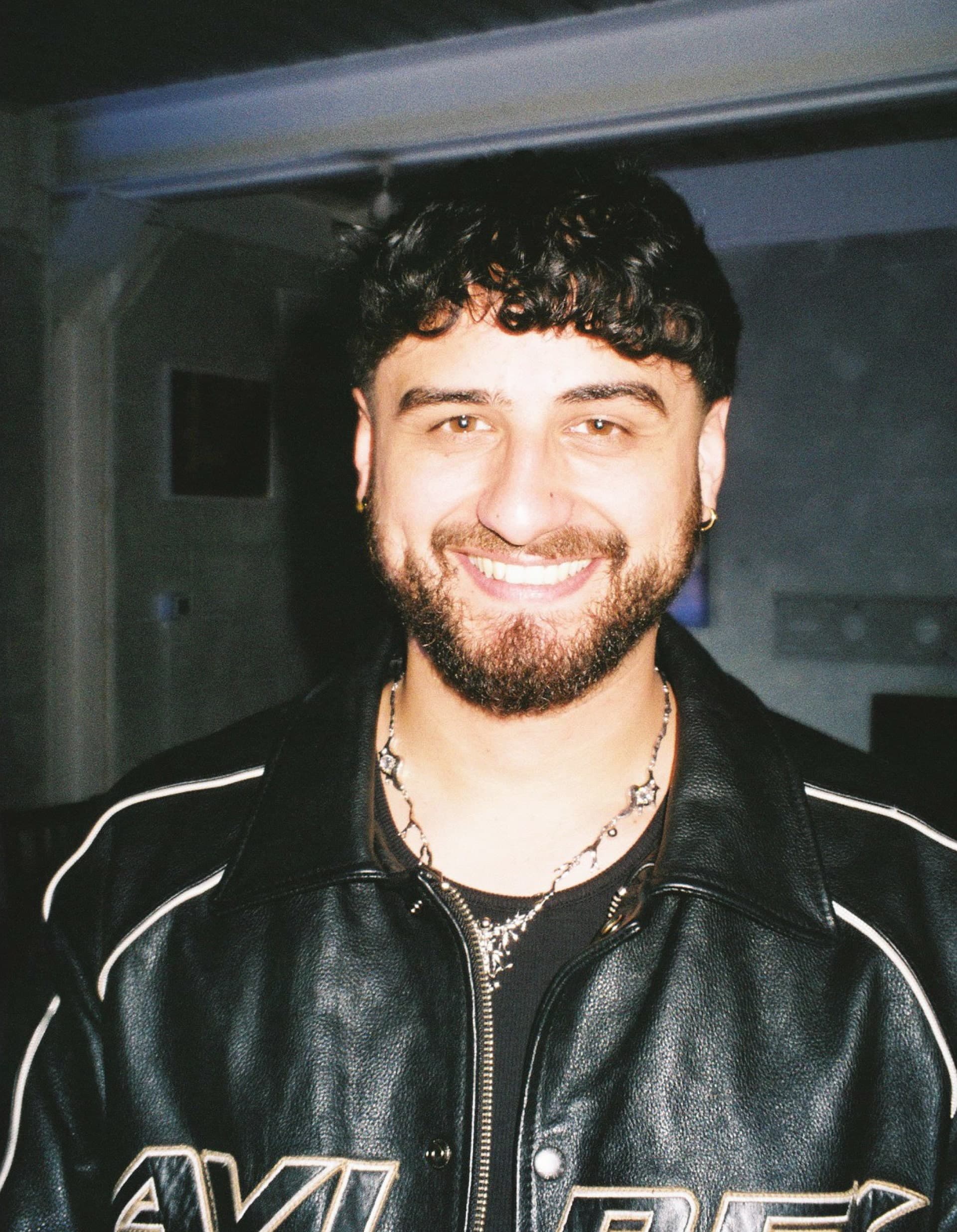
HUNGER: We’ll of course get to the album, but first of all, how’re you feeling about life in general right now?
Danny Sanchez: I’m feeling alright you know, I just had my birthday recently and I’ve been riding high since then so I’m feeling good.
And for anyone who’s unaware, can you tell me a little bit about where you grew up?
DS: Well, I grew up in Streatham Hill. But you always just say Brixton Hill because everyone knows Brixton Hill. And I feel like when you’re from London, you’re from your bit of London, not just the whole of the city.
At what point did you realise music was something you were passionate about? Was there a particular moment that sparked your interest or is it something you always remember loving?
DS: I always loved singing and I was always in the choir. If I’m being honest, one morning I woke up for school, I slapped on the TV and the music video for ‘The A Team’ by Ed Sheeran was on. And I swear to God, the next day I found this old guitar that we had in the garage and I just knew, this is me and overnight I wanted to be a singer-songwriter.
Moving onto the album, do you feel more pressure knowing that it’s a debut album instead of a single or an EP or mixtape?
DS: No, just because I feel like it’s time. The last time I released a project was in 2019, so I feel ready for it. If anything, I feel more confident because it’s just a good opportunity to really take me in and hear what I’ve been working on over the last two years. I feel like there’s a pressure in the sense that it’s a body of work and you want people to take it in. I decided to do no features, no nothing, just 10 straight tracks. So there’s a bit of pressure in that sense. But No, I feel like I’m in a good position for people to take me in as an artist and see what’s going on, you know what I mean?
For sure, and you mentioned you’ve been working on it for two years?
DS: So, ‘Sometimes’, the last single that came out for the project, is like two and a half years old. Maybe I didn’t know that it was going to be this album and how it is now, but the process started two and a half years ago.
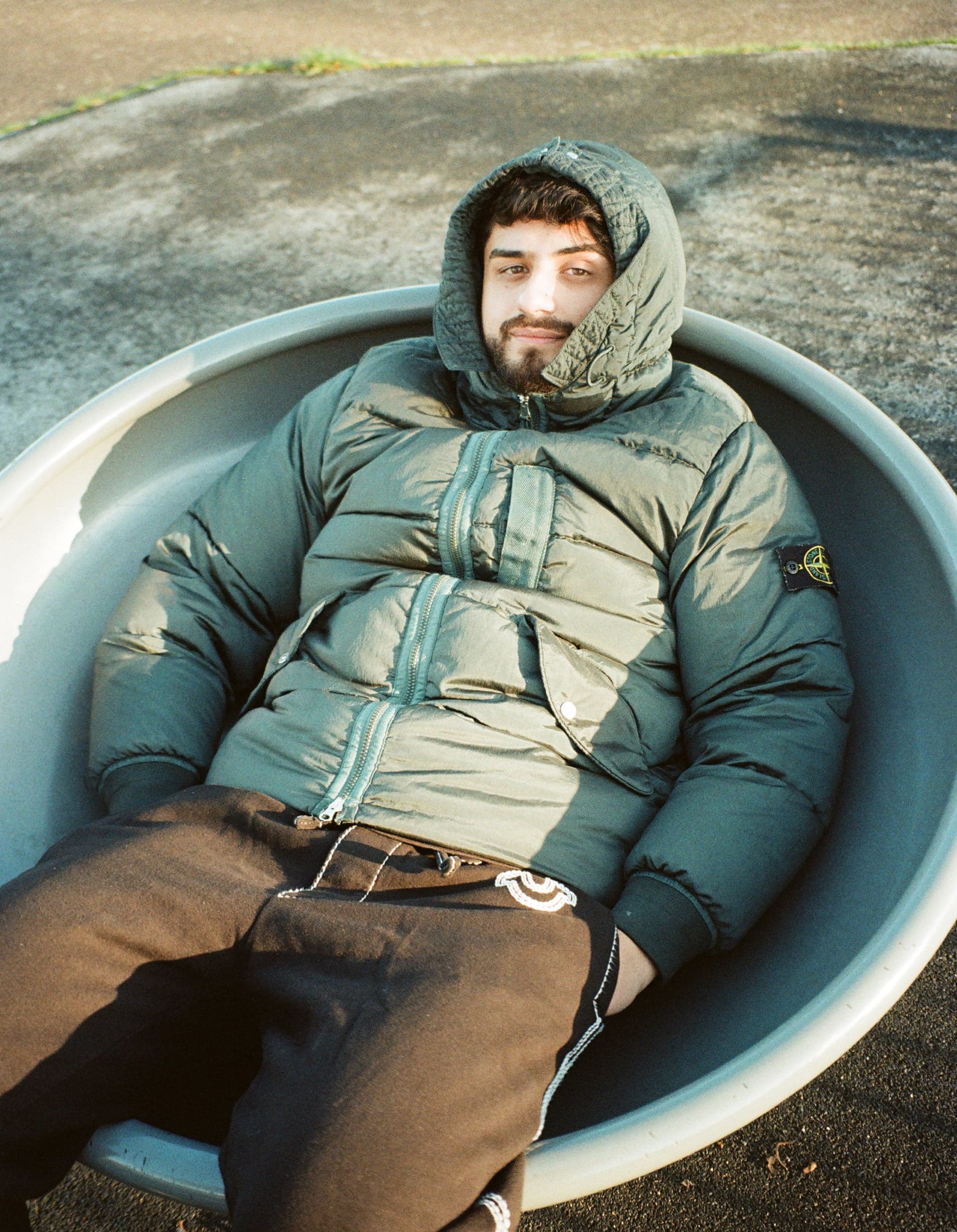
The title for the album is It Is What It Is Til It Isn’t, what was the inspiration behind that? Was it something you had in mind beforehand or did it come later on?
DS: I’ve had the name for a while because what it represents is this idea that it’s time to get it done. Do you know what I mean? I feel like I’ve been making music for quite a while now, and people may have known about me for quite a bit in certain spaces. And I’ve been getting a lot of people asking “Danny, where have you been? Why have you not been dropping?” You can blame it on this and that but it’s because I haven’t put my 10,000 hours in. I started telling myself, you might be talented, you can make a good song, but if you don’t give this your all, it’s just not gonna happen – now there’s no more leaving things to chance.
There’s of course the higher energy moments but overall, it’s a very personal and introspective project and straight away the first track is you laying out all your bad habits. How therapeutic was the making of this album for you?
DS: It’s cliché but music is my therapy, man. I just feel like you have to be vulnerable in music, especially when you make the kind of music I do. For me, I think the biggest thing is that relatability. People would listen to ‘Hold Up’ during lockdown and come and talk to me about it saying it’s helped them get through tough times – someone told me it helped them get through their mum’s illness. The fact that putting my feelings on a record can help people like that is the most important thing for me. That’s why I always really try to focus on topics of family and friends and love. I heard one thing the other day that said what you have in life is literally just the connections and the experiences and the people you choose to interact with. I just feel like it’s really important to get all that off my chest. And it’s 100% cheaper than therapy I’ll tell you that [laughs].
Nostalgia and memories of your younger years seem to be a key theme of the project. Are you someone who likes to reflect on those moments from the past quite often and what you can learn from them?
DS: I always say in life there are no mistakes, just lessons learned. One thing I will say, I feel like you do have to learn from your past. And if you’re making the same mistakes over and over again or ending up in the same situations, you have to take a look at that. Basically, if you’re always smelling shit, check your shoes! It’s crazy to me when I listen to the music that I’ve made over the years and I hear certain things that I’ve rapped about or spoken about and to see where I am now compared to where I was in that moment. It’s important to take a look back and question what’s got me to this moment. What do I want to change? And I feel like that’s what I’ll always try to put into my music.
I think one of the major things that stuck out on the album is the couple of bars about you looking in the mirror and seeing your enemy. Would you say that’s been a major challenge for you, accepting yourself?
DS: 100%, man. Over the years, the amount of times I’ve been my own worst enemy, shot myself in the foot or flopped an opportunity for myself because of being in the same behavioural patterns is crazy. But It’s something that a lot of us battle with. I always say to myself, if I were to win some big award one day and when people go, “Despite all my obstacles…” I’d have to say my biggest obstacle was just me being a twat. Again, tying back to the name of the project, and saying “it is what it is” was always my cop-out. I used to think life was against me, or things just never worked in my favour. But when you’re being your own worst enemy, you’re literally creating your own downfall.
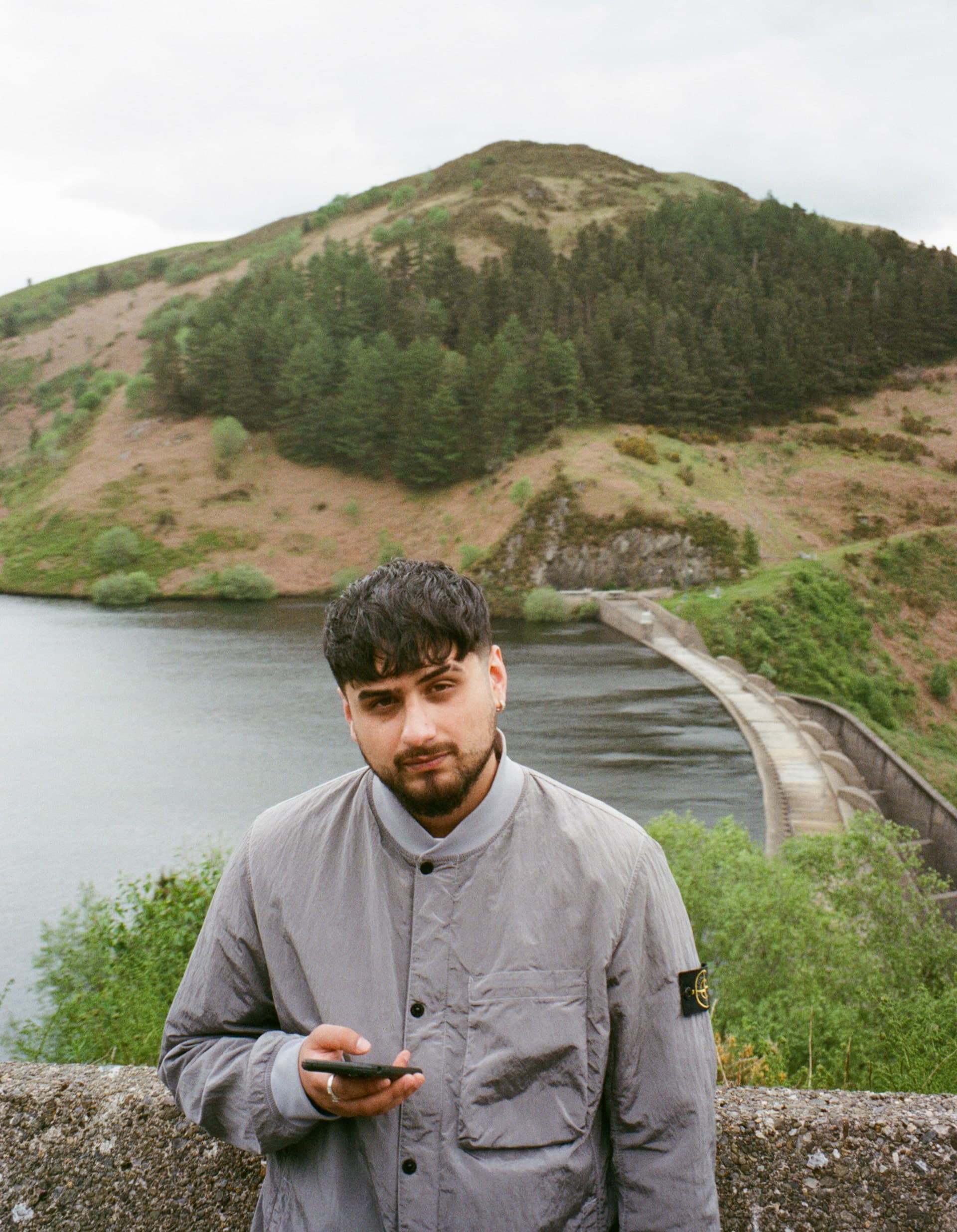
Yeah that’s definitely something that I’m sure a lot of people can relate to. From an emotional standpoint, was there a song that was really difficult for you to write and put out there into the world?
DS: I feel like the outro to the project [‘Man On A Mission’] was very vulnerable for me. A lot of people will say to me, “Danny, for a rapper, you’re actually a really good singer.” And I feel like it shows me that a lot of people maybe have taken in this song or that song where I’ve just rapped or done this and they’re like, “Oh, I didn’t know you sing”. And on that last one, I feel like it’s just pure emotion. It’s just me being completely open and honest about myself in every way. That was a track that I was wondering how people would perceive because It’s just me being completely open-ended and emotional.
Those more melodic tracks really stood out to me as well, I knew you could sing but it seemed like you really took it up a level on this album. Another track that stood out to me was ‘Blessings’, where you’re switching between Spanish and English – is putting your heritage to the forefront something that’s important to you?
DS: It’s funny because it’s not something that I look at with massive importance in the sense that I want to show my Latin side. It’s just something that I think comes out in its moments and definitely something that I want to explore more in the future. Like I’d love to release a project all in Spanish or a song all in Spanish. But I don’t know if being Latin is something that I want to portray if that makes sense. If you know me, you know how much I love my heritage, and how much I love my people. And I definitely need it to start coming out more. On the project, there’s a little bit on ‘Flash’ where I go into Spanish as well but it felt right at that moment. I want people to know about my heritage, and in the future, I definitely want to do more music where it’s just in Spanish, but if it happens, it happens. It needs to be natural.
The project is 10 tracks, and most of the tracks are under three minutes. In a day and age when we’re getting 20+ track albums every week, was it a conscious decision to make it as concise as possible?
DS: I didn’t want to walk before I could run, I haven’t made a project in such a long time and even the last project I did I must have been like 20 years old. It was only like six tracks so I just wanted to do something that was enough for it to be a consistent project. I didn’t want it to just be 20 songs that I’ve made over the last two years without a message. And I feel like I’ve done a good job of having the message from start to finish with this idea of growth and nostalgia and being where we are now. I didn’t want to oversaturate it but it wasn’t something that I overthought – at least I got to double digits!
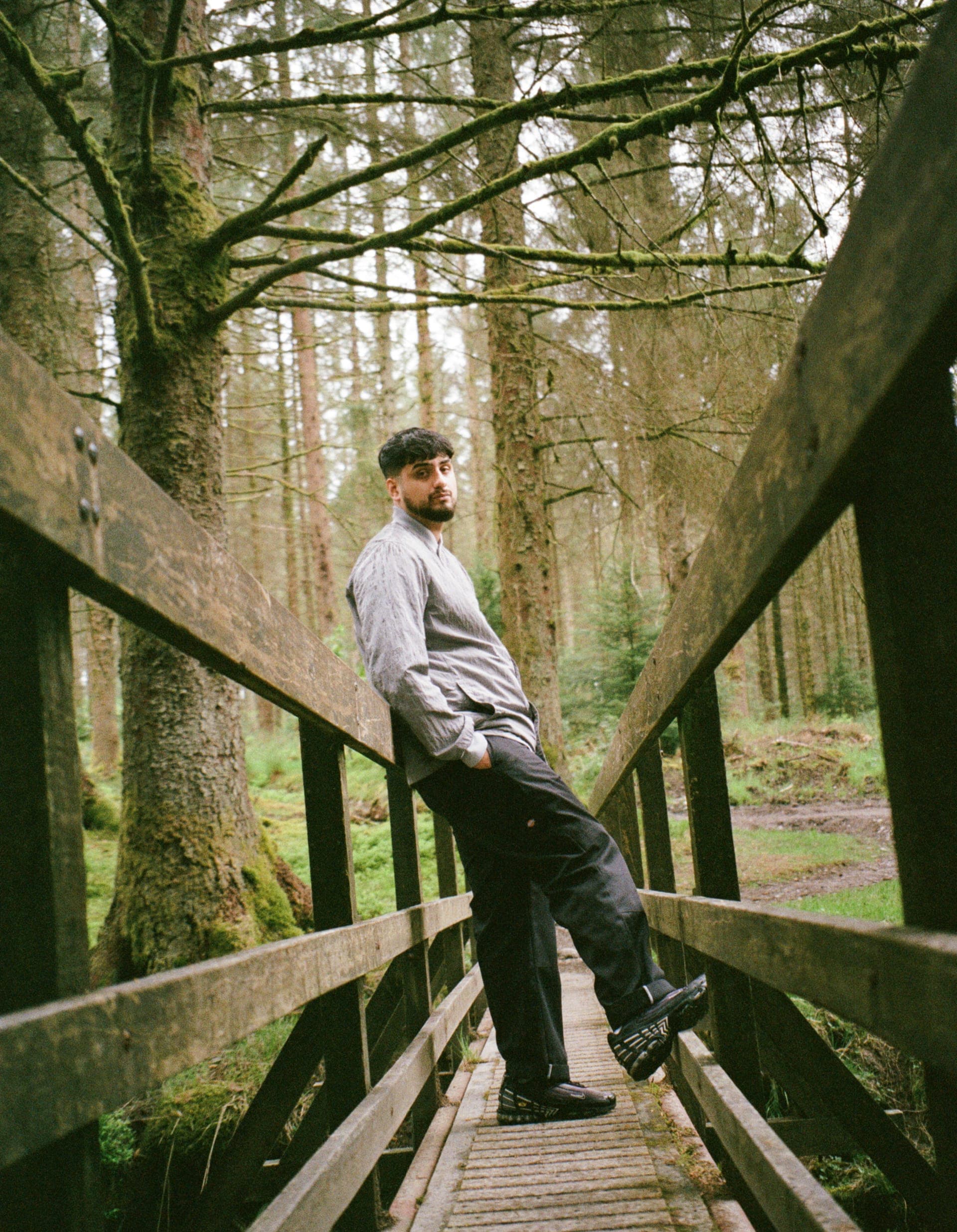
What was the biggest lesson you took away from the process of creating an album for the first time?
DS: I learned two big lessons. Firstly, take advice, but at the end of the day, listen to yourself. Some people are going to have their opinions and that opinion is going to come from a place of love, like your friends or your family. But if you believe in a song and you believe in what you’ve done, put it out. Because if I was going to listen to everyone’s advice it’d be a nightmare. People will ask, “Why don’t you do this? Why don’t you do that?” Because. I don’t want to, and this is how I want to do it. I saw a clip of Bryson Tiller saying he almost took down one of his biggest songs because the reception wasn’t that great at first. At the end of the day, you have to do things for yourself.
And the second thing that I learned from the project is that being a musician really is a job. You have to make this happen in the same way that if you were working for a company and they were telling you this is your deadline. It’s so crazy to me that we’re so willing to get stuff done for other people, but not for ourselves. If you had a boss at work and they’re telling you that you need to get this done by this time, or you have this deadline, you would get it done because you don’t want to get fired. The reason that the album’s probably taken me so long is because I’ve had these setbacks or because I’ve taken my foot off the pedal at certain times over the process where I’ve got uncomfortable. It really did teach me that if this is a job, you’re your own boss, and that means you need to live up to your own expectations.
And finally, what’s your goal within music as a whole? Is there something in particular you’re chasing?
DS: For me, success would be telling my mum to stop worrying about money. It’d be beautiful to say I just want to do this for the love of it. And I do, I love music and I’ve picked a career where you really do have to be passionate about what you do. But I’m sure a lot of people can relate to the idea of both your parents coming to this country as immigrants looking for a better life. My mum, God knows she supports my music wholeheartedly, but I know this woman wanted me to be a doctor or a lawyer making money and she gave me the trust, love and support to say, “You know what, go pursue your music career”. And just being able to show up outside with some car keys and say “Go on, get in your fucking Range Rover and enjoy that,” would be a dream.
But aside from that, I think having success for me would be just having time on my hands. At the minute, you’re working a full-time job and balancing music and doing this and doing that and just having the freedom to just live my life the way I want to live it would be success for me. I just want to enjoy myself. My mum and dad did so much hard work, for us to enjoy ourselves. I just want to have a good time, mate. Life is about a good time with your friends, with your family. And that, to me, would be the goal. Everyone’s so wound up at the moment and we need more positivity.
